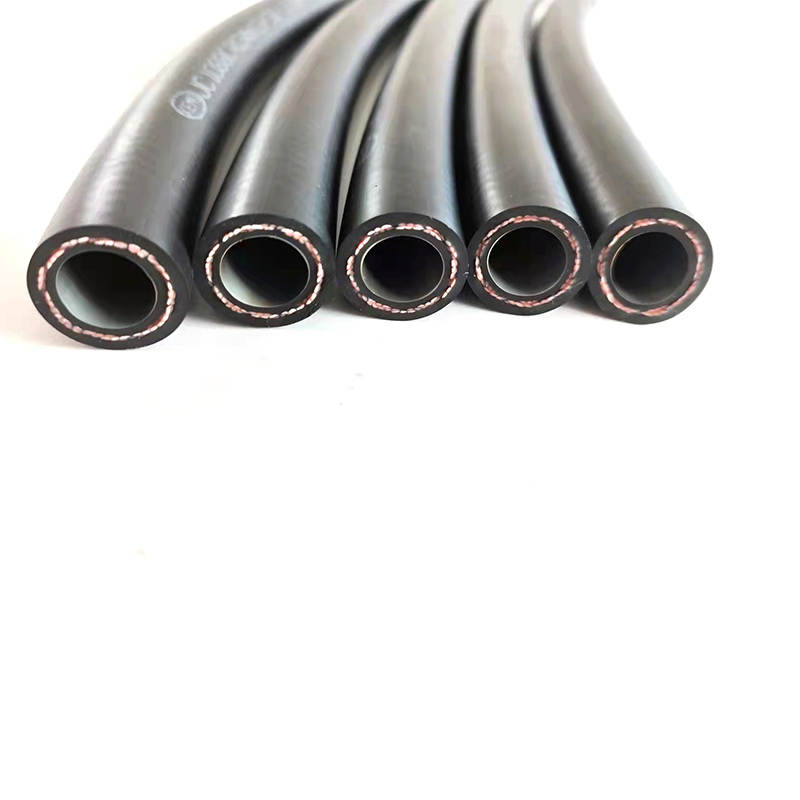gasoline fuel hose
دېكابىر . 22, 2024 20:59 Back to list
gasoline fuel hose
The Importance of Gasoline Fuel Hoses Ensuring Safety and Efficiency
In the world of automotive and fuel systems, one component that plays a critical role, yet often goes unnoticed, is the gasoline fuel hose. This essential component is responsible for transporting gasoline from the fuel tank to the engine, and its importance cannot be understated. The engineering behind fuel hoses has evolved significantly over the years, making them more durable and efficient, but the fundamental concerns regarding safety and performance remain paramount.
Understanding Gasoline Fuel Hoses
A gasoline fuel hose is typically made from materials such as rubber, nylon, or reinforced vinyl. These materials are chosen for their ability to withstand not just the physical demands of being a part of a fuel system but also the chemical properties of gasoline. Modern fuel hoses are designed to be resistant to the corrosive effects of fuel, while also enduring temperature fluctuations and physical abrasion.
The primary function of a gasoline fuel hose is to transport fuel under varying pressures without leaking. A compromised hose can lead to fuel spills, inefficiencies, or even catastrophic engine failures. Thus, regular inspections and maintenance of fuel hoses are vital for vehicle safety and performance.
Significance of Quality and Standards
The quality of gasoline fuel hoses is governed by stringent industry standards
. Organizations such as the Society of Automotive Engineers (SAE) establish guidelines to ensure that hoses are reliable and safe. For example, hoses used in modern vehicles often meet SAE J30 standards, which cover requirements related to materials and performance.Using substandard hoses can pose serious risks. Poor-quality materials may degrade more rapidly, leading to leaks or breaks. It is crucial to replace gasoline hoses according to manufacturer recommendations or at the first signs of wear. Furthermore, not adhering to high-quality standards can have broader implications, such as introducing harmful contaminants into the fuel system, which could damage the engine.
Common Issues and Maintenance
gasoline fuel hose

Maintaining the integrity of gasoline fuel hoses involves regular inspection for signs of wear, such as cracks, swelling, or leaking. It’s essential to check the connections at both ends of the hose—where it connects to the fuel tank and where it attaches to the engine. These areas are often prone to wear due to vibration, heat, and exposure to the elements.
Another common issue that can arise is the development of a kink or bend in the hose. Such deformities can restrict fuel flow, leading to poor engine performance, stalling, or a complete failure to start. Drivers should also pay attention to the smell of gasoline, as a strong odor can indicate a leak somewhere in the fuel system.
Innovations in Fuel Hose Technology
Technological advancements have led to significant improvements in the design and function of gasoline fuel hoses. The introduction of synthetic materials has enhanced the durability and flexibility of hoses while reducing weight. Some hoses now incorporate advanced features such as temperature sensors to monitor the fuel temperature, which can help prevent vapor lock—a condition where fuel vaporizes in the fuel line, leading to engine stalling.
In addition, the introduction of fire-resistant materials has further increased safety standards. These innovative designs can prevent flames from traveling along the hose in the event of a fire, protecting both the vehicle and its occupants.
The Environmental Impact
In today's eco-conscious world, the environmental impact of gasoline fuel hoses is an area of growing concern. Leaks not only pose safety hazards but can also lead to soil and water pollution. Therefore, using high-quality materials and ensuring proper installation and maintenance are not just matters of vehicle efficiency and safety, but also environmental responsibility.
In conclusion, gasoline fuel hoses are a vital component of any automotive fuel system. Their role in ensuring the safe and efficient transfer of fuel cannot be overlooked. As technology continues to advance, so too will the designs and materials used in gasoline hoses, promising even greater performance and safety. Owners and operators must prioritize regular inspections and adhere to quality standards to minimize risks and promote sustainability in the automotive industry. Investing in top-quality gasoline fuel hoses is not just a choice; it's a commitment to safety, performance, and environmental stewardship.
Latest news
-
Seven-Layer Winding A/C Hose Type C-HEBEI KEMO AUTO PARTS TECHNOLOGY CO., LTD|Low Permeability&High Durability
NewsAug.29,2025
-
Seven-Layer Type C A/C Hose-HEBEI KEMO AUTO PARTS TECHNOLOGY CO., LTD|Automotive Air Conditioning Solutions
NewsAug.29,2025
-
Durable Automotive Fuel Line: Car, Diesel & E85 Hoses
NewsAug.27,2025
-
Automotive Fuel Line & Hose Solutions | E85 & Diesel Ready
NewsAug.26,2025
-
Reliable Automotive Fuel Line | E85 & Diesel Compatible
NewsAug.25,2025
-
Durable Car Heater Hose | Quality Automotive Preheater Pipes
NewsAug.24,2025
